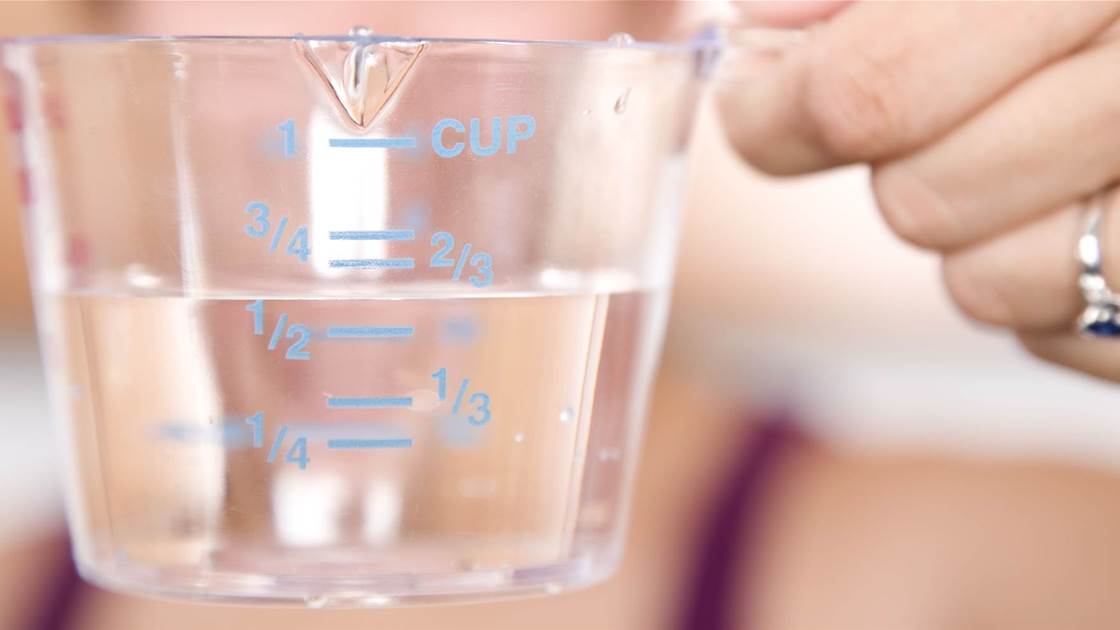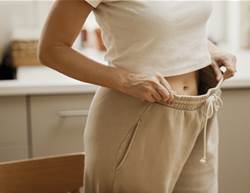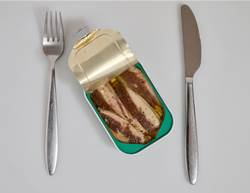The mystery kilo or two that pile on overnight. The swollen fingers. Those stiff joints. That sluggish feeling. A bloated stomach. All of these symptoms and more stick around with excess water weight.
And all this can be oh-so-frustrating when you’re cutting kilojoules and still seeing the scale creep up. To help you get rid of those annoying few kilos, we spoke with two dietitians about the safest and easiest ways to shed the extra H2O.
Slash the sodium
“Salt acts like a magnet to water in your body, hence the excess water weight. Other foods may make you feel bloated-don’t confuse the two sensations. Bran products, broccoli, cauliflower, cabbage and more cause that full feeling,” says dietitian Bonnie Taub-Dix.
Even if you think you’re well under the daily sodium recommendation of 2,300 milligrams per day, you might be underestimating. In contrast, the body needs 200 milligrams of sodium to function. “Salt is hidden in so many things, especially at restaurants because it’s a tremendous flavour boost for very little money,” Taub-Dix adds. In fact, more than 70 percent of dietary sodium is found in restaurant dishes and packaged foods.
Some people are more salt-sensitive than others. So how do you know? Taub-Dix recommends taking a look at your fingers about an hour after eating a higher-sodium meal. Are your rings leaving indentation or do they feel slightly inflamed? If you notice swelling in your hands, it might be a sign that you're salt-sensitive.
Cut back on carbs
Just like salt, “carbohydrates can cause water retention. When you consume carbs and don’t use them for fuel right away, your body converts them to glycogen. This is stored in the muscles for energy,” dietitian Amy Shapiro.
Approximately one percent of your muscle mass is straight glycogen, while eight percent of your liver’s weight is glycogen. For every gram of glycogen stored in those areas, you gain about 2.7 grams of water along with it.
Drink more water
When you consume too much salt, your cells drink up—and hold on to—every last drop of water they can. Their thirst tricks your body into thinking it’s not thirsty (even when it’s actually parched). So if you think you may have overindulged on the salt side of your diet, pour more H2O into that glass. Shapiro adds even more evidence to the pro-water campaign: “If you don’t drink enough water, the body holds on to water to prevent severe dehydration.” A study in the journal Obesity that found that drinking 500mL of water before a meal tricks your body into losing more weight naturally.
Pop a magnesium supplement
Fact: The first day of a woman's period is when she retains the most water all month. As the cycle moves along, the hormones that control water retention bounce back to normal. “So many people get discouraged by the scale, but that’s a measure of many things happening in the body, not just weight. Especially for young to middle-aged women, you might feel puffy before or during your period,” Taub-Dix says.
A magnesium supplement can help reduce the impact of the hormone-induced puffiness, Shapiro says. A Journal of Women’s Health study suggests that a 200-milligram magnesium supplement during menstruation can help lessen swelling, stomach bloat and weight gain.
Add more potassium to your diet
Think of potassium as the yin to sodium’s yang. Research in the American Journal of Kidney Disease links higher dietary potassium with less sodium in the kidneys, and thus, lower water retention and blood pressure. Intake recommendations are 4.7 grams of potassium per day, but the average woman only scores half of that (2.4 grams), according to a dietary reference intake report. Reach your daily quota with these 13 delicious foods that have more potassium than a banana.
Take a walk
Beyond burning a few kilojoules (about 418kJ (100cal) in 20 minutes for a 68kg), adding steps to your schedule can coax your cells into shedding water.
“Avoid sitting or standing in one place for too long because this can cause your tissues to hold and retain water,” Shapiro says. Conquer desk job drain by setting a reminder to walk for at least five minute every hour.
Hit the gym
You’ll notice even more water weight loss if you crank up the intensity. Not only will you burn off more of that glycogen, you’ll also trigger the lymph nodes into action.
“Moderate to vigorous exercise stimulates the flow of blood and lymphatic fluids that help remove water from the extremities,” Shapiro says.
Be patient but know when to ask for help
Tried all seven of these action items and still not having luck? Keep your expectations in check: “Be sensible about your expectation of the speed of water weight loss,” Taub-Dix says.
“What is causing the water weight? If you've had a few too many pickles, drink water and you’ll notice your weight going back to normal within a day. But if it’s linked to hormones, it might take a while.”
If you’re feeling out of sorts or very uncomfortable about your fluid retention, talk to your healthcare provider. Taub-Dix says, "This could be a sign of a blood pressure issue, medication problem or other health concern.”









